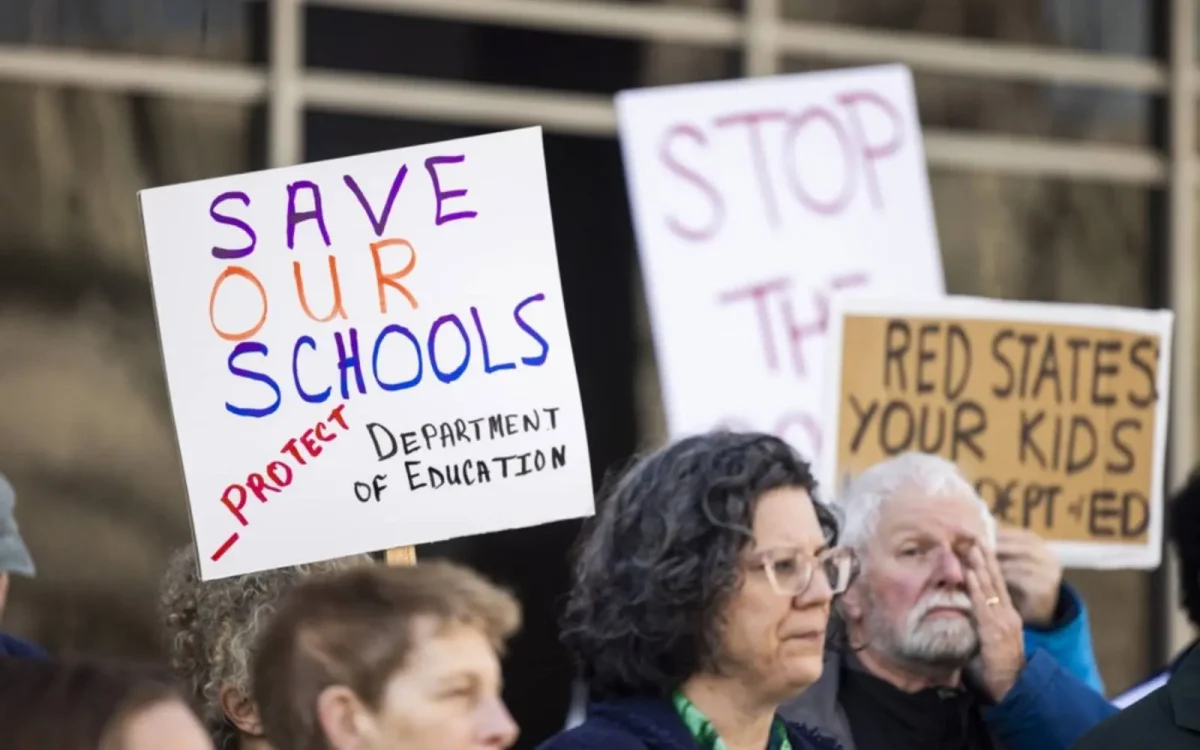Since Donald Trump took office, a series of new changes have caused uncertainty, particularly for students in the wake of a recent controversial decision.
The U.S. government has announced plans to dismantle the Department of Education, which could affect students across the country, including those at Sonoma State University. With important programs like the Free Application for Federal Student Aid and student loans in general, this raises concern about the future of student financial aid and access to higher education.
“I want to have an agency that oversees how the banks and lenders are doing things,” said Bryan Burton, an associate professor of criminology and criminal justice studies at Sonoma State.
The Department of Education has overseen various programs like student loans, financial aid, and educational policies not just for K-12 schools but colleges as well.
As for college students, this department is important for protecting borrowers and distributing financial aid and ensuring equal opportunities for all students, particularly those from marginalized backgrounds or with disabilities.
President Trump signed an Executive Order on March 20 instructing Linda McMahon, the secretary of education and former professional wrestling promoter, to work on eliminating the Department of Education, giving power back to the states.
Student loans will now fall under the Small Business Administration, which will be headed by Kelly Loeffler.
In a statement following President Trump’s order to dismantle the Department of Education, Linda McMahon said, “Education is fundamentally a state responsibility.”
“We’re going to follow the law and eliminate the bureaucracy responsibly by working through Congress to ensure a lawful and orderly transition,” McMahon continued.
“We’re going to have 50 different systems in one country,” said Burton. “California already has certain rules that protect you and I. But there’s other states, are they going to protect students the same way? Are they going to protect underrepresented students the same way?”
Looking at the situation at hand, it’s important to understand how this may affect Sonoma State with student loans and financial aid.
“Where are they going to get their Pell grant money from? How do we know if they’re actually going to give us money [for] students?” Burton continued.
Many students at SSU rely on federal funding programs, including Pell Grants and federal student loans to finance their education.
While this is not the first time Republicans have attempted to shut down the Department of Education, to pass this, it would require the Senate to have 60 votes. Republicans currently only have 53 seats.
If passed, other agencies will handle different programs for education, however, Pell Grants, FAFSA, and other student financial aid will continue unaffected.
While this may provide some relief for students, the layoffs will not go unnoticed.
The Federal Student Aid Office relies on contractors to help with the upkeep of softwares for FAFSA, organizing questions from students, parents and counselors, and the processing of records. With the elimination of the team, this opens a window for technical delays for FAFSA applicants.
“I’m not too worried about the future for [FAFSA] applications,” said a Sophomore student at Sonoma State who requested anonymity. “We already had problems last year with applying that I think errors and chaos is the new norm.”
“As a professor, I’m always trying to help [students] the best I can,” Burton said, “If I had a billion dollars, I [would] pay for everyone’s tuition, but I don’t and I think tuition should be free, personally.”
“If you dismantle the Department of Education, who at the state is going to be qualified? Who’s going to have that experience at the state level? And, also, who’s going to have the experience at the Small Business Administration where they talk about moving into? I don’t think it’s legal,” Burton continued.
As the situation continues to develop, Sonoma State students, and other students across the country, are left with little clarity on what the future holds for their financial aid and education. For now, advocating for the protection of essential support systems and staying informed is important for students who want to continue their education.





































